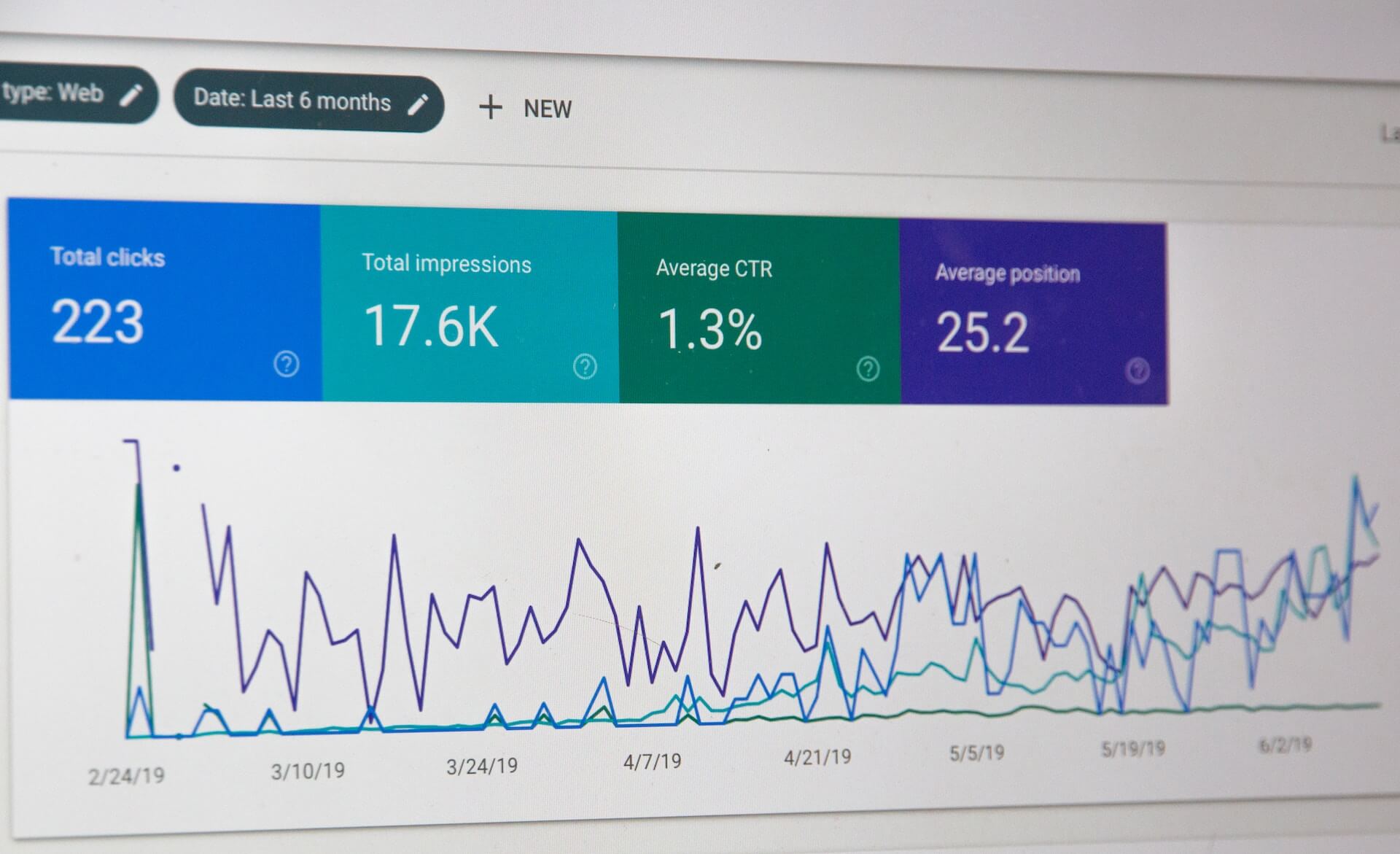Small businesses are always on the lookout for ways to increase their online visibility and turn clicks into customers. Pay-per-click advertising has emerged as a powerful tool to achieve these goals. But managing PPC campaigns can be a tricky affair, especially for those new to the game. The good news is that with the right approach, optimizing and managing your PPC campaigns can be both effective and cost-efficient. In this article, we’ll explore everything you need to know about small business PPC management, from setting up your campaigns to tracking and analyzing your results. So, get ready to take your PPC game to the next level!
Table of Contents
- 1. Introduction to Small Business PPC Management
- 2. The Importance of PPC for Small Businesses
- 3. Creating Your PPC Campaign: Tips and Tricks
- 4. Setting Realistic Goals for Your PPC Campaign
- 5. Understanding the Different Types of PPC Campaigns
- 6. Choosing the Best PPC Channels for Your Business
- 7. Keyword Research and Targeting for Small Business PPC
- 8. Tips for Writing Effective PPC Ad Copy
- 9. Measuring and Optimizing Your PPC Campaign Performance
- 10. Avoiding Common Small Business PPC Management Mistakes
- 11. Working with a Professional PPC Management Agency
- 12. Conclusion: Success Stories in Small Business PPC Management
- Our Readers Ask
- Final Thoughts
1. Introduction to Small Business PPC Management
As an entrepreneur venturing into the world of small business, it’s crucial to have a comprehensive strategy aimed at maximizing your online exposure. One of the most effective ways to achieve this objective is through Pay-per-Click (PPC) advertising. PPC management is a fundamental aspect of online marketing, and it entails running targeted ads that appear only to people actively searching for your products or services. Through PPC, you can significantly boost your brand’s visibility, attract new leads, and drive more traffic to your website.
Small Business PPC Management involves setting up targeted paid search campaigns that enable small businesses to make the most of their digital marketing efforts. By building high-conversion landing pages and crafting the right ad copy, your small business can make a significant impact on the search engine results pages. You’ll also have the opportunity to track measurable results through tools like Google Analytics, which will give you insights on how to optimize your campaigns continuously. Remember that PPC advertising is only effective when you have a comprehensive strategy that aligns with your small business’s goals, values, and resources.
2. The Importance of PPC for Small Businesses
PPC or Pay-per-click advertising is a highly effective way for small businesses to attract new customers and increase revenue by targeting highly specific audiences. With PPC, small businesses can create targeted and measurable ads that appear on search engines like Google, Bing, and social media platforms like Facebook, Instagram, and Twitter. These ads can be customized to reach specific customers based on factors such as demographics, location, interests, and behavior.
One of the biggest benefits of PPC for small businesses is that it allows them to compete with larger companies without breaking the bank. PPC is a cost-effective digital marketing strategy that only requires payment when a customer clicks on the ad. This means that small businesses can set a budget that suits their needs and only pay for the clicks that result in conversions. With the measurable nature of PPC, small businesses can track and optimize their campaigns to ensure they are getting the best ROI possible. With the right targeting, ad copy, and landing pages, PPC can be a powerful tool for driving traffic, generating leads, and increasing sales for small businesses.
3. Creating Your PPC Campaign: Tips and Tricks
Once you have researched and chosen the right keywords for your PPC campaign, it’s time to put together your ad copies and ad groups. It’s highly recommended to have multiple ad copies for each ad group. This allows you to experiment with different messaging and see which works best for your target audience. Use attention-grabbing headlines to pique the interest of the users and compelling descriptions that accurately describe what you have to offer. Remember to always align your messaging with your landing pages to ensure a seamless user experience.
Another tip for creating a successful PPC campaign is to constantly monitor and optimize your ad performance. Keep an eye on your click-through rate (CTR), conversion rate, and cost-per-click (CPC) to identify areas for improvement. Use A/B testing to experiment with different ad variations and see which performs better. Adjust bids and keyword targeting to ensure your ads are being shown to the right audience. By regularly analyzing and tweaking your campaign, you can maximize your ROI and achieve your desired results.
 4. Setting Realistic Goals for Your PPC Campaign
4. Setting Realistic Goals for Your PPC Campaign
One of the biggest factors for success in a PPC campaign is setting realistic goals that align with your business objectives. A lack of realistic expectations can lead to overspending and underperformance of your PPC campaign. To avoid these scenarios, it is important to establish achievable objectives that will guide your PPC strategy.
To begin, it’s helpful to determine the key performance indicators (KPIs) for your campaign. This could include metrics such as click-through rates (CTR), conversion rates, and cost per acquisition (CPA). Based on your current data and industry benchmarks, set reasonable targets for improving these KPIs over time. Additionally, consider the budget you have allocated for your campaign and ensure that your goals are attainable within that budget. Lastly, be prepared to adjust your goals and strategy as needed based on ongoing performance analysis. By setting realistic goals from the outset, you can give your PPC campaign a solid foundation for success.
5. Understanding the Different Types of PPC Campaigns
When starting with PPC advertising, it is important to understand the different types of campaigns available. Each of them has a specific goal and strategy. Here are some of the most popular types of PPC campaigns used in business marketing today:
Search ads: These are the most common PPC ads that you see in search engine results pages (SERP). They typically appear on top of the search results, with an “Ad” label beside them. The goal of search ads is to attract potential customers who are searching for specific keywords. These ads are highly targeted and can drive immediate traffic to your website. To create an effective search ad campaign, you should focus on relevant keywords, ad copy, and landing pages.
Display ads: These are visual ads that appear on various websites and social media platforms, such as Facebook, Instagram, and YouTube. Display ads can be in the form of banners, images, videos, and pop-ups. They are less targeted than search ads but can increase brand awareness and visibility. To create a successful display ad campaign, you need to have eye-catching visuals, clear messaging, and a well-designed landing page. You should also use targeting options such as demographics, interests, and behaviors to reach your desired audience.
6. Choosing the Best PPC Channels for Your Business
One of the most critical decisions a marketer has to make when it comes to running a PPC campaign is choosing the right channels. There are several PPC channels available, and each channel can generate traffic to your site in a unique way. Choosing the wrong channel can result in wasted ad spend, and it could also lead to poor performance.
The first thing to consider when choosing a PPC channel is to identify your audience. Different PPC channels have different user demographics, and you need to choose channels where your target audience is most likely to be found. One of the best ways to do this is by analyzing your website traffic to determine user behavior. You can also use tools like Google Analytics and Facebook Insights to gain insights into the interests and behaviors of your target audience. Once you have a clear understanding of your audience, you can decide which channels to invest in. Some of the top PPC channels include Google Ads, Facebook Ads, Instagram Ads, LinkedIn Ads, and Twitter Ads. Each of these channels has its unique strengths and weaknesses, so it’s important to evaluate them carefully.
 7. Keyword Research and Targeting for Small Business PPC
7. Keyword Research and Targeting for Small Business PPC
When it comes to running PPC campaigns for small businesses, keyword research and targeting are essential for success. By targeting specific keywords related to your business, you can increase the chances of reaching the right audience and driving relevant traffic to your website. Here are some tips to help you with your keyword research and targeting:
– Conduct thorough research: Start by identifying the relevant keywords that your potential customers might use when searching for your products or services. Use keyword research tools like Google Keyword Planner, SEMrush, or Ahrefs to find highly relevant and profitable keywords for your small business.
– Create groups of related keywords: Once you’ve identified your target keywords, group them into relevant categories or themes based on their intent. For instance, if you’re a local bakery, you might group keywords related to cakes, bread, pastries, and coffee into separate ad groups. This ensures that your ads are relevant to the searcher’s intent and increases the chances of conversions.
Another important aspect of keyword targeting is understanding the user’s search intent. This means understanding why a user might be searching for a particular keyword and what they’re hoping to gain from their search. For instance, if someone searches for “cheap flights to New York,” they’re likely looking for affordable travel options. By creating ads that cater to their specific needs, you’ll increase the chances of converting them into customers.
– Use negative keywords: Negative keywords are the keywords that you don’t want your ads to show up for. For example, if you own a high-end fashion boutique, you might want to exclude keywords like “cheap” or “discounted” from your ad campaigns. This helps you avoid attracting irrelevant traffic and keeps your ad spend focused on highly relevant clicks.
Remember that PPC campaigns are not a one-size-fits-all solution for small businesses. Take the time to research your keywords, understand your target audience, and use your budget wisely to get the best results. By following these tips, you can build a successful PPC strategy that helps grow your small business.
8. Tips for Writing Effective PPC Ad Copy
It’s no secret that crafting an effective PPC ad can be the difference between a successful campaign and a forgettable one. So to help guide you in creating killer ad copy, here are eight tips to keep in mind:
1. Be specific and targeted: Use ad copy that speaks directly to your target audience and their unique needs and pain points.
2. Highlight your unique value proposition: Clearly communicate what sets your product or service apart from the competition.
3. Use keywords wisely: Incorporate relevant keywords into your ad copy, but avoid stuffing them in unnaturally.
4. Make it benefit-driven: Focus on the benefits of your offering rather than just the features.
5. Use strong calls to action: Encourage users to take action by using clear and compelling language in your ad copy.
6. Use numbers and stats: Incorporating statistics or figures can lend credibility and make your ad more enticing.
7. Be mindful of character limits: Remember that character limits vary by platform, so craft your ad copy accordingly.
8. Continuously test and refine: Keep an eye on your ad performance and make updates as needed to optimize for success.
By following these tips, you’ll be well on your way to creating effective PPC ad copy that engages your audience and drives results.
9. Measuring and Optimizing Your PPC Campaign Performance
Once you’ve set up your PPC campaign, it’s important to measure its performance to understand what’s working and what’s not. This will allow you to make informed decisions and optimize your campaign for better results. Here are some tips to help you measure and optimize your PPC campaign performance:
– Use tracking tools: Tracking tools like Google Analytics and AdWords Conversion Tracking can help you measure the performance of your ads. Keep an eye on metrics like click-through rates, conversion rates, and cost per conversion to understand how your campaign is doing.
– Identify high-performing keywords: Look for keywords that are driving the most traffic and conversions, and make sure to bid higher on those keywords to maximize your returns. You can also add negative keywords to avoid wasting money on clicks that don’t convert.
Once you’ve identified the high-performing keywords, it’s time to optimize your campaign to improve its efficiency. Here are some ways you can optimize your PPC campaign:
– Improve ad copy: Make sure your ad copy is compelling and relevant to your target audience. Use language that resonates with them and highlight the benefits of your products or services.
– Test different ad formats: Experiment with different ad formats like text ads, image ads, and video ads to see what works best for your audience.
– Optimize landing pages: Make sure your landing pages are optimized for the keywords you’re targeting and provide a clear call to action. A well-designed landing page can significantly improve your conversion rates.
It is critical to maximize its effectiveness. By using tracking tools, identifying high-performing keywords, improving ad copy, testing different ad formats, and optimizing landing pages, you can increase click-through rates and conversions and ultimately, achieve a better return on investment.
10. Avoiding Common Small Business PPC Management Mistakes
One of the biggest mistakes that small business owners often make when it comes to PPC management is failing to define their target audience properly. Knowing who your ideal customer is will help you create ads that resonate with them and get better conversions. Take the time to research your audience’s demographics, behaviors, interests, and pain points so you can target them effectively.
Another mistake to avoid is not having clear and measurable goals for your PPC campaign. Before you start running ads, you need to know why you’re doing it and what you want to achieve. Do you want to increase website traffic, generate leads, or boost sales? Whatever your goal is, make sure it’s specific, achievable, and aligns with your overall business objectives. This will help you track your progress and optimize your campaign accordingly.
11. Working with a Professional PPC Management Agency
Hiring a professional PPC management agency has many benefits that can help you achieve your business goals. With their expert knowledge and experience, they can help you create effective pay-per-click campaigns that drive traffic to your website, increase conversions, and boost your ROI. They can also provide valuable insights and analytics to help you optimize your campaigns and target the right audience.
When choosing a PPC management agency, it’s important to look for one that has a proven track record of success and a team of certified professionals. They should also use the latest tools and technology to ensure your campaigns are highly targeted and optimized for maximum results. Additionally, they should provide regular updates and reports to keep you informed of your campaign’s progress and performance.
PPC Agency can be a game-changer for your business. It can help you stay ahead of your competitors, maximize your budget, and reach your target audience with precision. So if you’re ready to take your PPC campaigns to the next level, consider partnering with a reputable agency today.
 12. Success Stories in Small Business PPC Management
12. Success Stories in Small Business PPC Management
After analyzing the various success stories of Small Business PPC Management, it can be concluded that PPC advertising is an effective marketing strategy to achieve business objectives. Small businesses can significantly benefit from PPC advertising as it is a cost-efficient method to reach a targeted audience and drive traffic to their website. Moreover, it can help businesses generate leads and revenue in a short amount of time.
Several companies have leveraged PPC advertising to achieve great success. For instance, ThriftBooks, a used-book seller, observed an 83% increase in sales by using PPC advertising. Similarly, KlientBoost, a digital advertising agency, saw a 132% increase in revenue in just six months by implementing PPC management best practices for its clients. Therefore, businesses should consider investing in PPC advertising and working with experts to achieve their desired results.
Our Readers Ask
Q: What is PPC?
A: PPC stands for pay-per-click, a digital advertising model in which advertisers pay a fee each time their ad is clicked. PPC advertising has become an essential part of online marketing, especially for small businesses looking to attract new customers.
Q: Why is PPC important for small businesses?
A: PPC allows small businesses to reach potential customers online quickly and effectively. It is a cost-effective way to reach potential customers, and the results can be tracked in real time. Additionally, PPC campaigns can be targeted to specific audiences, ensuring that your ads are being seen by people who are most likely to be interested in your business.
Q: What are some tips for optimizing my small business PPC campaigns?
A: Firstly, make sure that your ads are relevant to the keywords you are targeting. Additionally, use ad extensions to provide additional information or links to specific pages on your website. Experiment with different ad formats and placements to find what works best for your business. Finally, monitor your campaigns regularly and adjust your bids and targeting as necessary.
Q: How do I know if my PPC campaigns are successful?
A: The success of your PPC campaigns can be measured through various metrics such as click-through rate (CTR), conversion rate, and return on investment (ROI). These metrics can be analyzed through tools such as Google Analytics or the advertising platform you are using.
Q: Can I manage my own PPC campaigns, or should I hire a professional?
A: It is possible to manage your own PPC campaigns, but it requires knowledge of the advertising platform, keyword research, and monitoring performance. If you are not familiar with PPC, it may be best to seek the help of a professional to ensure that your campaigns are properly optimized and managed.
Final Thoughts
Small business PPC management might seem like a daunting task, but with the right approach and tools, it can become a powerful ally in growing your business. Remember to set clear goals, identify your target audience, use the right keywords, and test and optimize your campaigns regularly.
By investing time and effort into your PPC campaigns, you can reap the rewards of increased website traffic, higher conversion rates, and improved brand awareness. Whether you decide to do it yourself or enlist the help of professionals, PPC advertising is a proven strategy for small businesses looking to compete in today’s digital world.
So what are you waiting for? Start building your PPC campaigns now and watch your small business soar!





